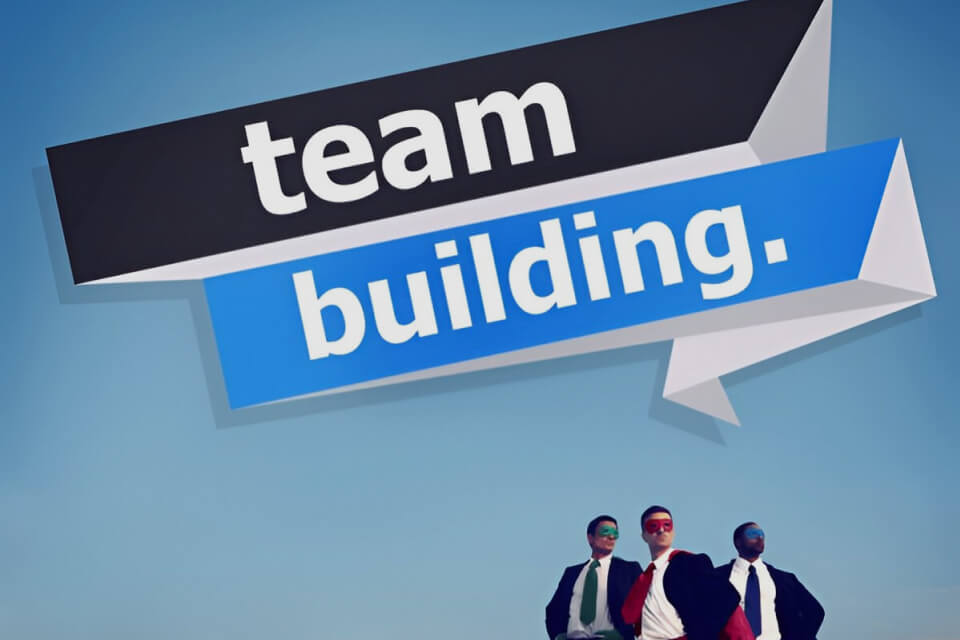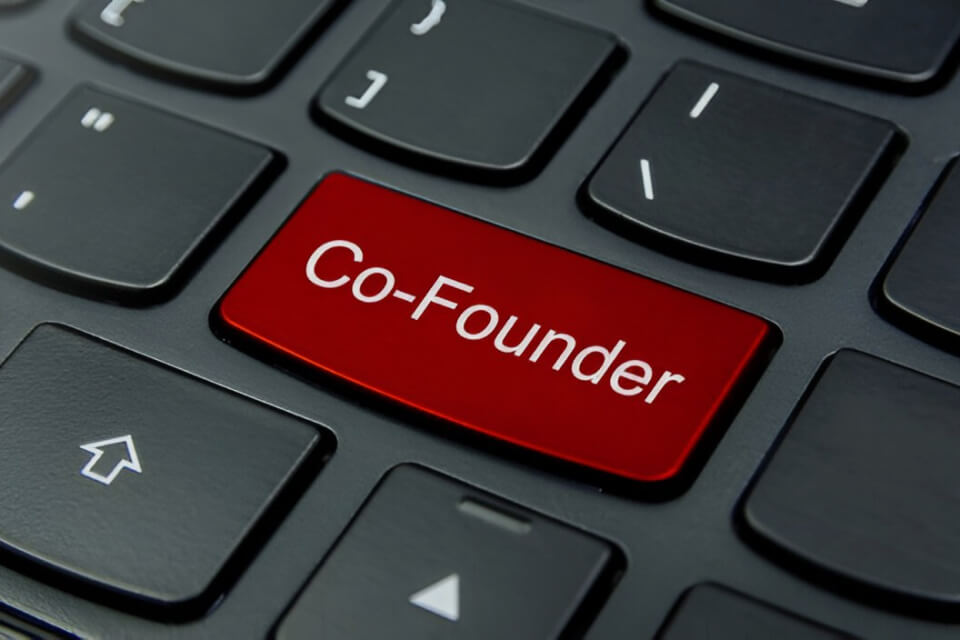Introduction
Understanding the Importance of Co-Founders
Starting a business can be exciting, but it’s never something you should do alone. That’s why learning how to find co-founders is very important for anyone who wants to become an entrepreneur. A good co-founder is someone who balances your strengths, shares your vision, and helps you face challenges with confidence. When you work together with the right person, you can turn a small idea into a big success.
However, finding the right co-founder does not happen in one day. It takes time, honest communication, and trust. You need to look for someone who has the right mindset, skill, and passion for the business,not just someone you get along with. You can meet potential co-founders by going to startup events, joining founder communities, or using online platforms made for entrepreneurs. These places help you connect with people who have similar goals and values.
Also, building a strong relationship from the beginning matters a lot. Good teamwork is built on trust, respect, and shared purpose. When investors see this kind of partnership, they are more likely to believe in your startup. So, if you dream of growing your business in Africa and beyond, learning how to find co-founders is your first and most powerful step.
Identifying the Right Co-Founders
Building a successful startup is not only about having a smart idea, but also about having the right people by your side. When you find co-founders who share your dreams and values, your chances of success grow a lot. No matter what business you are starting, choosing the right co-founders is one of the most important steps. You do not just need someone with skills, you need someone you can trust, learn from, and grow with. Finding the right person takes time and effort, but if done well, it can make your startup stronger for the long run.
Knowing What to Look For in a Co-Founder
Finding a good co-founder starts with knowing what kind of person your startup needs.
First, check your own strengths and weaknesses. If you are good at marketing but weak in tech skills, look for someone who can handle the technical side.
Next, your co-founder should believe in your business idea, not just in making quick money. A good partner brings passion, problem-solving skills, and a strong desire to keep going even when things get hard.
You can start your search from people you already know – classmates, colleagues, or trusted friends. They already understand your work style and ethics. But if you can’t find anyone suitable, try attending startup events, joining online founder communities, or using match-making platforms like CoFoundersLab or Founder Institute. Meeting people through these spaces can help you find someone whose skills and goals fit yours. After meeting a few people, start with small projects together to see if you both work well as a team before forming a full partnership.
Aligning Vision and Values
Even if someone is very skilled, your partnership won’t last if your visions don’t align. You and your co-founder must agree on what success means and how you want the company to grow. It’s important to talk openly about your goals, work habits, and personal values. For example, discuss how you make decisions, handle stress, or settle disagreements. If one person wants fast profit while the other prefers long-term growth, conflicts will appear.
You both should also show equal commitment. Many startups fail when one founder loses interest after facing challenges. Regular conversations help build trust and understanding. When both of you share the same goals, values, and level of commitment, your partnership becomes stronger and more stable.
Evaluating Compatibility and Commitment
Once you find possible co-founders, test your teamwork by working together on a trial project. This helps you see how each person reacts under pressure and how you both solve problems. Compatibility means you can communicate well, respect each other’s opinions, and handle disagreements maturely. Building a startup is not always easy, so you need someone who can stay calm and supportive even in tough times.
Commitment also matters a lot. Ask questions about your co-founder’s time, energy, and financial readiness. Are they willing to give the same level of effort as you? Do they see the same future for the business? If not, your partnership may not work well. Honest discussions from the start can save you from future problems.
Once you are sure about the person’s compatibility and commitment, formalise the partnership properly. Learn how to structure a venture deal and connect with investors early. A well-organised team always attracts more trust from funders and reduces future conflicts.

Building Complementary Skills
If you want to find co-founders and build a strong team, you need people whose skills are different but fit well with yours. Every successful startup has founders who bring unique strengths. One person cannot handle everything alone. It is better when you have a team that covers all parts of the business. So, let’s look at what kind of skills your team needs and how to find the right co-founders.
Key Areas of Expertise to Cover
Every startup must cover a few main skill areas to stay strong. When one person tries to do everything, it leads to stress and mistakes. Having co-founders with complementary skills helps balance the workload and keeps things running smoothly. When you start looking for co-founders, think of people who can fill these three important areas.
Technology
The tech expert, often called the technical co-founder, is the person who builds the product or service. In Africa, where technology is changing industries like farming, finance, and health, having a strong tech co-founder is key. They can design apps, develop platforms, and create smart solutions that solve real local problems. For example, in fintech or agritech startups, the tech lead ensures the product works well, stays secure, and can grow.
To find a good tech co-founder, go to tech events, hackathons, or use trusted co-founder matching platforms like CoFoundersLab or Y Combinator’s Co-founder Network. You can also meet potential partners by joining local tech communities or developer groups
Finance
The finance co-founder, or the CFO-type partner, takes care of money matters. They plan budgets, manage funds, and talk to investors. In Africa, where funding can be competitive, a finance co-founder helps the team stay organised when pitching to investors. They also handle taxes, financial reports, and record-keeping. Having someone who understands startup finance builds investor trust and makes fundraising easier. Look for a person who knows financial management, accounting, and how venture capital works.
Marketing
The marketing co-founder is the storyteller of the business. They grow the brand, attract customers, and make sure people know what your startup offers. In Africa’s diverse markets, your marketing partner should know how to adapt messages to different cultures and regions. A strong marketer helps your product stand out and connect with people. Look for someone with experience in social media, branding, or content creation. This role is also useful when talking to investors, as they love founders who can clearly explain their brand and market potential.
Assessing Skill Gaps
Before finding co-founders, take time to understand your own strengths and weaknesses. Ask yourself: what part of the business am I good at? What do I need help with? The areas you struggle with show the kind of co-founder you should look for. You can use tools like the Business Model Canvas to spot what skills are missing. After that, start networking, attend startup events, and join online communities to meet people who can fill those gaps. Remember, a team with different skills is always stronger.
Finding co-founders in Africa is not only about skills but also about trust and shared goals. It takes time to build the right partnership, so be patient. Look for people who share your vision, passion, and work ethic.
Where to Find Potential Co-Founders
Finding the right co-founder can make or break your startup journey. If you want to build something great, you need people who share your dream, energy, and determination. Knowing where to meet them is the first step. Whether you are just starting or already growing, here are some of the best places to find co-founders and build a strong team in Africa.
Networking Events and Hackathons
Networking events and hackathons are some of the best places to find co-founders. They bring together smart and ambitious people who love solving problems with technology and creativity. You can meet developers, designers, and business-minded people who are also looking to start something new.
At events like the Africa Tech Summit or local startup weekends, you can pitch your idea, form a small team, and create a quick prototype. Many successful startups in Africa began this way. If you are not sure about working together yet, you can test the partnership by joining a hackathon challenge first. This helps you see how well you work together before making it official.
Also, these events give you access to mentors, investors, and accelerators who can guide you on how to raise funds or structure your business properly. So, showing up and networking really matters. It could open doors to new opportunities.
Professional Platforms and Communities
In today’s world, digital communities make it easier to connect with the right people. Online platforms like CoFoundersLab, CoffeeSpace, and FoundersBase let you search for co-founders based on skills and interests. On LinkedIn, you can create a professional profile explaining your idea and the kind of partner you are searching for. Be clear: share what you are building, your goals, and the type of help you need.
If you need a technical co-founder, GitHub is a good place to look. There, you can see developers’ past work and how active they are. When you reach out, start with a friendly message and focus on building trust. Talk about your goals clearly and show that you are serious about your startup vision.
You can also join startup communities on Telegram, Slack, or WhatsApp. Many African tech groups use these spaces to share opportunities, pitch ideas, and discuss how to connect with investors or understand new funding trends in the region.
Universities and Incubators
Universities in Africa are becoming centres for innovation and entrepreneurship. They often host pitch competitions, business clubs, and hubs where you can meet like-minded students and young professionals. For example, iHub in Kenya, Co-Creation Hub (CcHub) in Nigeria, and MEST Africa in Ghana regularly bring together talented developers and business thinkers.
Joining an incubator or university entrepreneurship program can also connect you to mentors and investors. These programs help you learn important skills—how to pitch, plan your business, and attract venture capital. They not only help you find co-founders but also teach you how to grow your startup successfully.

Ensuring Team Alignment
When you find co-founders, one of the most important things to focus on is making sure everyone is moving in the same direction. This is called team alignment. It means all co-founders understand and believe in the same vision, mission, and goals of the startup. Without this, even a great business idea can fail. Alignment starts from day one, so every co-founder must agree on what success looks like and how they plan to reach it. Regular talks about progress, strategy, and decision-making keep everyone on track. It’s also smart to use a founder agreement early. This document explains each person’s ownership, role, and responsibility, helping to avoid future arguments or confusion.
Defining Roles and Responsibilities
When you find co-founders, you must clearly define who does what in the business. Each person should know their duty and how they add value to the team. For example, one co-founder may take charge of product development, while another manages finance or marketing. This clarity helps prevent overlap and reduces stress. However, you also need to stay flexible because startups change quickly.
As the company grows, roles may shift, and team members might take on new tasks. By setting roles early and reviewing them often, every co-founder stays active and accountable. It also helps investors see that your team is organised, which is important when raising funds or planning a venture capital deal.
Setting Shared Goals and Milestones
Setting shared goals is another key part of building a strong founding team. Co-founders should agree on which milestones matter most—like reaching a certain number of customers, hitting revenue targets, or launching a new product. When everyone works toward the same goals, it builds unity and motivation.
Using tools like progress trackers or having regular check-in meetings helps you measure growth and stay transparent. Celebrating wins and learning from mistakes together keeps the team connected. Investors also prefer startups with well-aligned teams because it shows discipline and teamwork. In Africa, where venture capital can be harder to access, a united team gives investors confidence to support your dream.
Building Trust and Communication
Trust is what holds every co-founding team together. Without it, even the smartest people will struggle to work well. Building trust takes time, honesty, and open communication. Always share the truth about challenges and be clear when making decisions. Listen to feedback and treat differences with respect. Good communication stops small issues from becoming big problems. Some founders even test their teamwork with small projects before fully committing. This also helps build credibility with investors.
When venture capitalists see that co-founders communicate openly and trust each other, they believe in your leadership. A strong, united team often attracts more funding and forms lasting partnerships.
Sustaining Team Growth
Building a strong team starts with finding the right co-founders and continues with growing and sustaining that team. A motivated team that keeps learning, adapts to change, and shares success is key to any startup’s success in Africa.
Encouraging Continuous Learning
For any startup team, especially in Africa’s growing markets, learning never really ends. You should encourage your team to always update their skills, attend training, or try new tools. This can happen through workshops, online courses, or even informal sessions where team members share what they know.
When people improve their skills, the whole business grows stronger. It also keeps everyone excited about new ideas and ready to handle challenges. You may ask, “How can we stay ahead in a fast-changing world?” The answer is simple: make learning a normal part of your team’s daily life. Continuous learning helps your team stay creative and ready for anything that comes their way.
Adapting to Change and Scaling Up
No matter how good your team is, change will always come. Markets shift, competitors show up, and technology keeps changing. A team that adapts fast can survive and even grow bigger. That is why flexibility and teamwork are so important. Encourage everyone to support one another and adjust quickly when new challenges or opportunities appear.
As your startup expands, you will need to scale your team by adding people with new skills. But remember, growth is not just about hiring more people, it is about building the right team for the next level. This is why learning how to find co-founders who have different but complementary strengths is so important. For example, if one person is good with product design, another might be great at marketing or finance. Together, they make a balanced and strong team.
Rewarding Performance and Ownership
One of the best ways to keep your team strong and motivated is to reward good work fairly. It can be through salary increases, bonuses, or even giving team members a small share in the company. People work better when they feel valued and see that their effort matters. Giving a sense of ownership makes them more loyal and committed.
You can set clear goals for your team and link rewards to those goals. As you learn how to structure a venture capital deal and build relationships with venture capitalists, remember that keeping your team happy is also part of your success. Many startups fail when their teams lose motivation, especially during tough times. But when your team feels appreciated, they stay focused and keep pushing forward.

Frequently Asked Questions (FAQs)
1. How can I find the right co-founder?
Start by checking the people around you.Then, go to networking events, join online entrepreneur groups, or use co-founder matching platforms. You can also share your idea on LinkedIn or Twitter; you might meet someone who believes in your vision.
2. What skills should I look for in a co-founder?
Look for someone who has what you don’t. For example, if you’re great with ideas and business, find someone who is good with tech or design. Also, make sure you both share similar values, goals, and work ethics. It’s not only about skills, but also about teamwork and trust.
3. Is it better to start with a co-founder or hire employees first?
It’s often better to have a co-founder first. They help share the workload, make decisions with you, and take the same risks. Two founders can often raise money faster and grow the startup better than one person trying to do everything alone.
4. How do I test if a co-founder is a good fit?
Before making it official, try working on a small project together. This will show how you both handle challenges, communicate, and solve problems. It’s like a friendship test before a partnership.
5. What happens if co-founders fall out?
Sometimes co-founders disagree, which is normal. In fact, 10 to 20 percent of startups face this. That’s why you should have a written founder agreement. It should clearly say what happens if someone leaves or if there’s a big argument. This helps keep things professional and fair.
Conclusion
Finding a co-founder is one of the most important decisions when starting your business. Look for someone who shares your dream, complements your skills, and believes in the same mission. Go out, attend startup events, and join online groups. You never know where you might meet your perfect co-founder.
Also, starting small helps. You can first bring someone on as a tech lead or advisor before offering full co-founder status. This protects your startup and gives you both time to see if it’s a good match.
Having a great co-founder makes the startup journey easier and more exciting. You’ll not only share the hard work but also the joy of every success. And with a strong team, raising funds and growing your business becomes smoother. Remember, teamwork truly makes the dream work




2 thoughts on “How to Find Co-Founders and Build a Strong Team”
Excellent breakdown, I like it, nice article. I completely agree with the challenges you described. For our projects we started using Listandsell.us and experts for our service, Americas top classified growing site, well can i ask zou a question regarding zour article?
I have been surfing online more than 3 hours today yet I never found any interesting article like yours It is pretty worth enough for me In my opinion if all web owners and bloggers made good content as you did the web will be much more useful than ever before